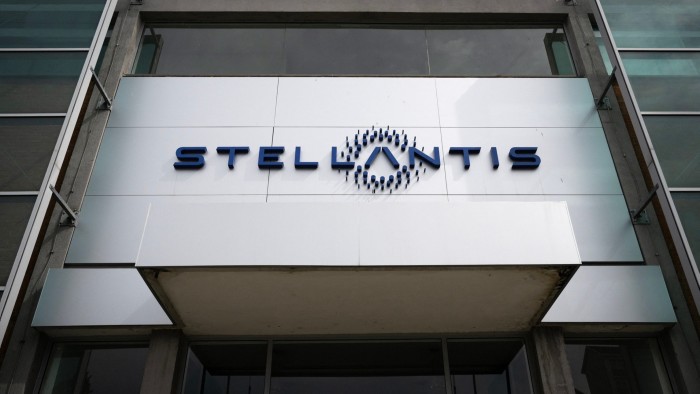Unlock the Editor’s Digest for free
Roula Khalaf, Editor of the FT, selects her favourite stories in this weekly newsletter.
Stellantis said it would end efforts to develop hydrogen vehicles as it focuses its resources on electric cars and hybrids to meet EU’s tougher emissions standards.
The decision leaves Stellantis’s hydrogen joint venture with Michelin and Forvia facing an uncertain future, with its partner companies warning of “serious and immediate operational and financial consequences”.
The move by the owner of the Peugeot, Fiat and Opel brands also means that only a handful of carmakers, including Toyota, Hyundai and BMW, remain committed to expanding the use of hydrogen fuel cells as higher costs impede widespread development outside of China.
“The hydrogen market remains a niche segment, with no prospects of midterm economic sustainability,” said Jean-Philippe Imparato, Stellantis’ chief operating officer for Europe. “We must make clear and responsible choices to ensure our competitiveness.”
In a fuel cell, hydrogen reacts with oxygen to produce a flow of electricity, with water as the waste product. Hydrogen has a higher energy density than lithium batteries, making it particularly suitable for heavy vehicles such as trucks and buses.
But sales of hydrogen-powered vehicles have fallen flat, even for the biggest proponents such as Toyota. This is largely the result of the high cost of carbon-free hydrogen and the lack of filling stations for the gas, from which a fuel cell makes electricity to power the car.
The EU’s emissions targets have also forced other car companies to concentrate their investments in electric vehicles.
However, Oliver Zipse, BMW’s chief executive, has argued that hydrogen should have a future because of its potential to create energy independence for Europe, especially as the world relies heavily on Chinese batteries for EV technology.
“We’re not stupid. We’re thinking, it’s the only technology where you’re completely independent,” Zipse said. “Hydrogen, is it efficient? No, it’s not efficient, but that’s not the point. If you want to be independent, if you want that as a political aim, you don’t care about efficiency.”
Toyota has previously warned that hydrogen vehicles could suffer the same fate as battery-powered electric cars, with Chinese groups rapidly dominating supply chains and exports unless other countries step up investment in the technology.
In the case of Stellantis, the company had hoped to expand the sales of its hydrogen-powered vans through Symbio, a joint venture owned 33.3 per cent each by Stellantis, Michelin and Forvia.
Symbio, which has more than 650 employees, had counted on Stellantis as its main customer accounting for 80 per cent of its business volume, according to Forvia. Michelin said Stellantis had notified the company about its decision to stop investing in hydrogen in May.
“This unexpected, abrupt and unilateral decision is all the more surprising given that Stellantis had consistently positioned itself as a pioneer in this emerging market,” Michelin said. “Michelin’s primary concern lies with the impact this will have on Symbio’s employees, both in France and abroad.”


